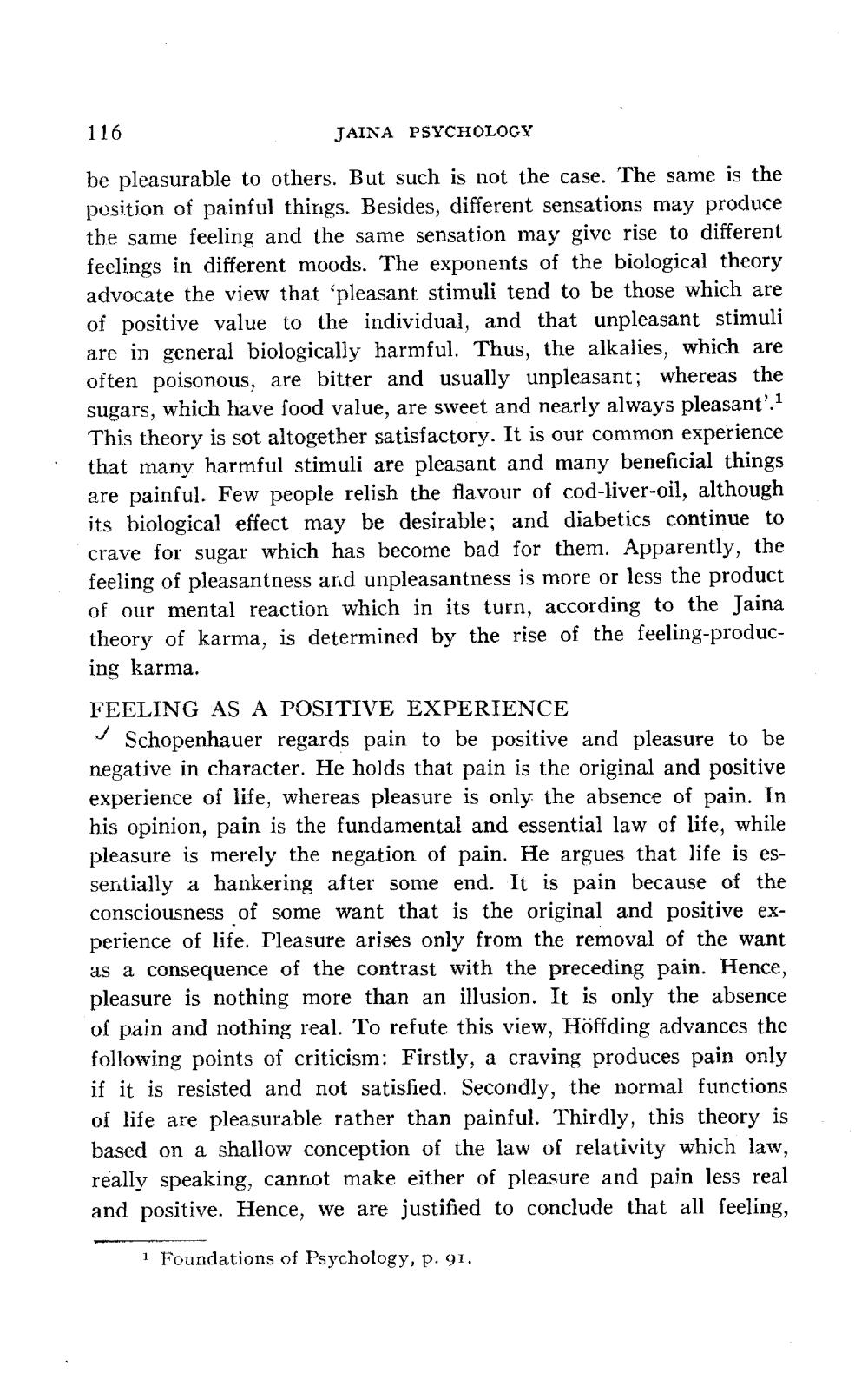________________
116
JAINA PSYCHOLOGY
be pleasurable to others. But such is not the case. The same is the position of painful things. Besides, different sensations may produce the same feeling and the same sensation may give rise to different feelings in different moods. The exponents of the biological theory advocate the view that 'pleasant stimuli tend to be those which are of positive value to the individual, and that unpleasant stimuli are in general biologically harmful. Thus, the alkalies, which are often poisonous, are bitter and usually unpleasant; whereas the sugars, which have food value, are sweet and nearly always pleasant'.1 This theory is sot altogether satisfactory. It is our common experience that many harmful stimuli are pleasant and many beneficial things are painful. Few people relish the flavour of cod-liver-oil, although its biological effect may be desirable; and diabetics continue to crave for sugar which has become bad for them. Apparently, the feeling of pleasantness and unpleasantness is more or less the product of our mental reaction which in its turn, according to the Jaina theory of karma, is determined by the rise of the feeling-producing karma.
FEELING AS A POSITIVE EXPERIENCE
J Schopenhauer regards pain to be positive and pleasure to be negative in character. He holds that pain is the original and positive experience of life, whereas pleasure is only the absence of pain. In his opinion, pain is the fundamental and essential law of life, while pleasure is merely the negation of pain. He argues that life is essentially a hankering after some end. It is pain because of the consciousness of some want that is the original and positive experience of life. Pleasure arises only from the removal of the want as a consequence of the contrast with the preceding pain. Hence, pleasure is nothing more than an illusion. It is only the absence of pain and nothing real. To refute this view, Höffding advances the following points of criticism: Firstly, a craving produces pain only if it is resisted and not satisfied. Secondly, the normal functions of life are pleasurable rather than painful. Thirdly, this theory is based on a shallow conception of the law of relativity which law, really speaking, cannot make either of pleasure and pain less real and positive. Hence, we are justified to conclude that all feeling,
1 Foundations of Psychology, p. 91.




